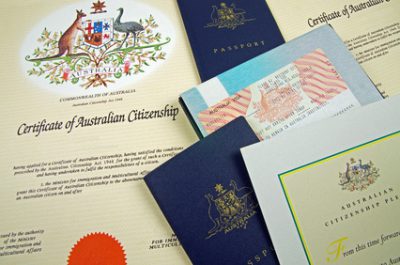I was surprised to read this week former Immigration Minister Philip Ruddock’s comment that it is unlikely proposed anti-terror laws would see an Australian deported before their appeal is heard. Some years back a client of mine was deported to the UK by ministerial direction pursuant to section 501 of the Immigration Act. He had come to Australia with his family as a child, and was in his 20s when he was convicted of a criminal offence.
He served several months in prison before the Minister decided to deport him on the grounds of bad character. He had grown up in Australia and had no family, friends, or social support of any kind left in the UK, but once the ministerial decision was made, he was on the plane and headed for the Old Country. He was gone before his lawyer even had a chance to talk to him, much less lodge an appeal or take it to a hearing.
Not that that would likely have done him much good anyway. In fact there is no right of appeal of such decisions, only a right of judicial review. All judicial review does is check whether the decision-maker crossed all his t’s and dotted his i’s when going through the process. It does not allow a court to consider the justice or otherwise of the original decision. As respected Melbourne-based human rights lawyer Julian Burnside QC pointed out earlier this week there is no proper substitute for a judicial hearing by a judge on the facts.
Any kid born in Australia to parents born overseas (including yours truly) is born with dual citizenship. Under currently-proposed anti-terrorism laws the Immigration Minister would be able to revoke the Australian citizenship of such people with the stroke of a ministerial pen. Once that happened, like my erstwhile client they could be unceremoniously deported to a very foreign country, without so much as a hearing on the merits.
Mr Ruddock, who has been appointed Special Envoy for Citizenship and Community Engagement, and is running the coalition’s consultation on the issue, said earlier this week that it was unlikely anyone would be deported before a judicial review of their case, although he conceded it was theoretically possible. I don’t now remember whether Mr Ruddock was the Immigration Minister at the time my client was deported, but as one can readily imagine, busy Ministers of the Crown don’t always have the time to personally review in fine detail every bureaucratic recommendation they approve. But he was only talking about judicial review in any event, not a hearing on the merits. Under the proposed legislation, no court of law would even consider the justice of the case.
Eight hundred years ago this Friday, 12 June 1215, King John of England affixed his royal seal to the Magna Carta, a binding ‘charter of liberties’ that would be forever guaranteed to citizens of the Crown. It is the legal concept of citizenship that entitles each of us to the liberties we enjoy as members of a free society.
Under the proposed anti-terror legislation, a government minister could unceremoniously strip Australians of their citizenship. That’s a very, very big call. To make that call administratively and unilaterally, without any hearing in the courts to determine the true facts and the justice of the matter, would be decried by some, and certainly was by Mr Burnside QC earlier this week, as “the most fundamental breach of the rule of law.”












